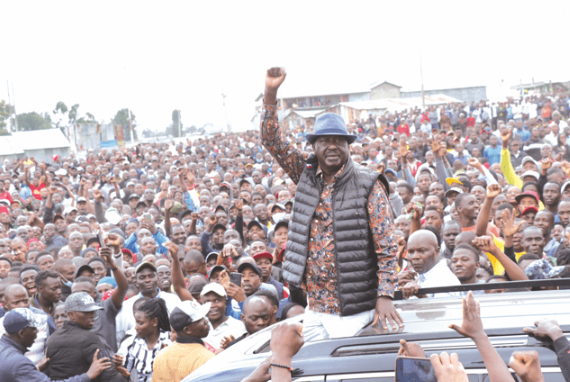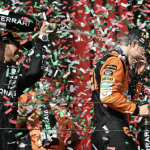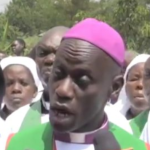Opposition leader Raila Odinga has created uncertainty among his allies considering a collaboration with President William Ruto’s government by issuing new demands and supporting the recent Gen Z protests.
Raila has emphasized that six key issues need to be addressed by the government before any dialogue can proceed, echoing some of the demands made by the Generation Zoomer (Gen Z) activists.
On Sunday, Raila showed support for the Gen Zs by advocating for justice for victims of police brutality during recent protests and the dismissal of related cases. His new stance complicates the efforts to establish a government of national unity, which was previously nearing fruition.
This shift in Raila’s position follows recent approvals from the decision-making bodies of his Orange Democratic Movement (ODM) for structured negotiations with President Ruto. It also comes after Raila was reportedly engaged in discussions with Ruto about a government of national unity and had tentatively agreed to Cabinet positions for his allies.
However, at the last minute, Raila’s change of mind led to a revision of the Cabinet lineup, resulting in President Ruto unveiling 10 Cabinet Secretary positions and one Attorney General slot without ODM representatives.
Since the Cabinet announcement, Raila has been sending mixed signals regarding his rapprochement with Ruto, leaving his allies uncertain. On Sunday, Raila clarified his position, asserting that justice must be prioritized before engaging in talks with Ruto’s government.
His conditions include compensation for victims of police brutality, dismissal of all protest-related cases, and the release of those detained during the protests. Additionally, Raila called for resolutions to issues related to the welfare of health workers and education, particularly for junior secondary school teachers.
The former prime minister said President Ruto must return the National Health Insurance Scheme to NHIF and scrap SHIF.
“Once these issues are resolved, we can focus on a national conversation, and conducted transparently in a neutral venue,” Raila said.
Raila said that the representatives of the dialogue, he noted, should also come from various sectors including youth, government, religious leaders, health care professionals, lawyers, and teachers.
This is a complete about-turn from what they agreed with Ruto a few days ago when they held talks at the Kenya International Convention Centre.
After the talks, President William Ruto announced the beginning of a national dialogue that was to be between July 15 to 17 with at least 150 representatives.
“In the interest of making sure we live within our means; all participants will bear their attendance costs. This is a result of consultations we have held this morning,” Ruto said at KICC.
Raila had backed Ruto’s dialogue push, terming it “the best way forward out of the crisis we are having today as a country.”
“We will give people an opportunity to be heard,” Raila said, adding that it will provide a platform for Kenyans to air their grievances and table issues they think are ailing the country towards “a lasting solution.”
“There are many issues affecting Kenyans but all of them are solvable,” said the former prime minister.
“Unemployment, corruption, ethnicity, debt and the management of the economy are issues we need to talk about.”
But since then, Raila has shifted goalposts.
The opposition leader’s ODM lieutenants are now sharply divided on whether or not to join the government of national unity after President Ruto dismissed his Cabinet on July 11 to give room for a broad-based government.
While some have embraced Raila’s initial announcement that his camp was ready for talks with Ruto, some have been thrown into confusion after he came guns blazing with fresh demands.
Siaya Governor James Orengo, one of Raila’s lieutenants has criticised the idea of ODM joining Ruto’s administration terming it as an abomination, a disaster and something that cannot work.
“We cannot at a time we are mourning our people and some are scrambling for positions, this cannot happen,” Orengo said.
He was speaking in North Alego, Siaya county on Friday during the burial of 25-year-old Kevin Onyango who was killed during the anti-government protests.
“I went to morgues and saw our children there. People are saying this is not our war but our children are dead in it. How can we get to government and those who have been killed have not gotten justice? I do not accept,” he said.
“Am urging everybody that joining the Kenya Kwanza administration they are getting into a disaster and abomination it cannot work.”
Siaya Senator Oburu Oginga recently said that the ODM party is ready to form a government of national unity with the Kenya Kwanza administration for the sake of Kenya’s tranquillity.
Speaking to the press in Kisumu last Sunday, Oburu said that as much as he supports the push by the young generation, the ‘Ruto must go’ calls are unwarranted as they may lead the nation to anarchy.
“Azimio affiliate parties who are unwilling to be part of the dialogue that has been proposed are also free not to do so,” said Oburu, Raila’s elder brother.
Reports indicate that Raila Odinga’s shift away from the deal with President William Ruto might be influenced by a prominent political figure who is rallying support for Raila’s potential 2027 presidential run.
This leader is reportedly urging Raila to abandon his bid for the African Union Commission chairman and concentrate on local politics. This development has caused unease among ODM supporters.
ODM Chairman John Mbadi publicly criticized this strategy, arguing its impracticality. He questioned the feasibility of overthrowing Ruto and warned that if Ruto were to resign, Deputy President Gachagua would assume the presidency. Mbadi stressed the importance of pursuing practical and realistic political strategies rather than dismissing dialogue with Ruto.



